With 2023 around the corner, many of us are coming up with New Year’s resolutions. One of mine is to finish my second novel—and I suspect I’m not alone in aspiring to authorship in the year ahead.
Writing a book while balancing a day job and parenthood isn’t easy. If you’re seeking advice and inspiration for how to make the transition from counselor to content creator, then you’ll enjoy my interview with Helen Wan, the Biglaw associate turned in-house lawyer turned acclaimed author. Her novel The Partner Track, which I reviewed for the Wall Street Journal when it was published in 2013, became a hit series for Netflix in 2022, as well as a top conversation topic within Biglaw and the legal world more generally. If you enjoyed the Netflix show and would like to learn more about its backstory, this episode will interest you as well.
For those of you in the New York area, Helen and I will be doing an in-person event on January 12 at the offices of Boies Schiller Flexner in Hudson Yards. Details and tickets are available via the New York Women’s Bar Association Foundation, and we look forward to seeing some of you there. Happy new year!
P.S. I’m still on vacation, so I won’t be writing much between now and January 9, and I might be slow on correspondence. But I wanted to maintain my every-other-Wednesday schedule for this podcast, so I recorded this episode before leaving the country.
Show Notes:
Helen Wan, author website
The Partner Track, Amazon
Book Review: The Partner Track, by David Lat for the Wall Street Journal
Partner Track, Netflix
Prefer reading to listening? A transcript of the entire episode appears below.
(This transcript has been cleaned up from the audio in ways that don’t alter meaning—e.g., by deleting verbal filler or adding a word here or there to clarify meaning.)
David Lat: Hello, and welcome to the Original Jurisdiction podcast. I’m your host David Lat, author of a Substack newsletter about law and the legal profession also named Original Jurisdiction, which you can read and subscribe to by visiting davidlat.substack.com.
You’re listening to the eighth episode of this podcast, which was recorded on Tuesday, December 20. My normal schedule is to post episodes every other Wednesday.
My guest today is Helen Wan. Helen is a lawyer, novelist, speaker, and diversity and inclusion consultant. She has found success in all of these fields but is most well-known as a novelist: her debut novel, The Partner Track, was turned into a hit series on Netflix, which I suspect was binge-watched by almost all of my lawyer listeners, especially listeners in Biglaw. If you liked the show, as I did, you will love the book. As I said in reviewing Helen’s novel for the Wall Street Journal in 2013, it’s not only engaging and suspenseful, but also realistic and keenly observed.
In our chat, Helen and I discussed her upbringing by tiger-ish parents; her impressive career in the law, far longer than the legal careers of most lawyers turned writers; how much of The Partner Track is based on her own time at a large law firm; and the sacrifices she had to make in order to maintain a high-powered legal career while also writing a hugely successful novel. If you’re one of the many lawyers out there who aspires to a literary career, keep listening for some wise and practical advice.
Without further ado, here’s my interview of Helen Wan.
DL: Helen, thank you so much for joining me.
Helen Wan: It's a pleasure to be here. Thank you, David.
DL: So let's start at the beginning, just like good storytellers. You were born in California, I believe, and grew up in northern Virginia. What was your upbringing like, and were there any early hints that you would become either a lawyer or a writer?
HW: Yes, you're right. I was born in Carmel, California, but I consider myself an East Coast person because I was raised in the northern Virginia suburbs of D.C., where my parents still are. I grew up attending Fairfax County public schools and I had always enjoyed writing, but my path took a turn when a magnet school opened up in Fairfax County, Virginia.
It's called the Thomas Jefferson High School for Science and Technology, and it was a new venture, a new school, and some of my teachers had suggested that I take the test and apply. And I did, and I got in, and that was a turning point for me, because I think that I [might] have come to writing sooner had I not gone to a specialized science and tech high school.
DL: That's interesting. So TJSL, as it's known, is sort of famous now in legal circles because there's a lot of litigation over its admissions process because it's a very prestigious, coveted magnet school, and there are issues about diversity and [admissions] standards. So I'm curious, were you in the first class then at TJSL?
HW: Nope, I was not in the first class, but I was definitely in one of the earliest classes that entered there.
DL: And it's known for its STEM excellence—were you a STEM person at the time?
HW: No. The ironic thing is that I knew that I was not really destined to be a science or math or techie kid. But it was just new to Fairfax County, and obviously it became this very well-known and quite prestigious public high school. But I just took the test because my teachers had said, “Hey, I think that you should really give this a shot, why not see what doors this can open for you, nothing to lose by applying, by taking the test.” And so then when I got in, I thought about it, and at first for a lot of kids it was like, “Oh, a slam-dunk decision, I'm definitely going to go.” But for me, it wasn't that, because I kind of knew that I wasn't a science, math, and tech kid.
DL: I'm curious. You're my fellow Asian American. Did you have so-called “tiger parents”? Were they sort of like, “Yes, Helen, you got into TJSL, now you have to go!”
HW: That is a great question, David. I would say that like many other Asian-American kids who grew up with first-generation immigrant parents, yeah, they were to some extent tiger parents. I'd say, maybe on a Tiger Mom and Tiger Dad scale of one to ten, they were probably seven.
DL: Okay.
HW: Yeah, so they definitely were like, “Well wait, this is kind of a no-brainer. You got into this science-and-tech magnet school. You're going to go, obviously, and I don't understand why we're having this conversation.”
And I saw their point, even then as a kid, because I knew that I would get a good education. I knew that it would be a slightly smaller class size, because otherwise my zoned public high school was a huge, huge school, like the whole shebang, a very competitive football team, a huge northern Virginia public school. That would've been my high school experience. But instead I went to Jefferson and definitely got a great education there. However, I did not really get much of a—let's put it this way, it was not emphasizing creative writing.
DL: Okay. I was actually curious about that. So, as a novelist today, were you the kind of kid who in elementary school or high school was writing out your own novels or fairy tales or anything like that? Or were you not really as a kid doing creative writing?
HW: Well, it's funny because now, especially lately, with a lot of recent attention to The Partner Track and also the television show, I've had occasion to think, huh, when did I begin writing and knowing that I was in love with the written word and I really wanted to be a “writer,” you know, a capital “W” writer.
And in elementary school, I did love—like many other kids—I loved writing original stories. I loved illustrating them. I even bound them, stapled them. This was before you could actually—kids can print and publish their own books now—but I did that, and I had great teachers and an elementary school librarian at Ravensworth Elementary. She was wonderful, and she actually asked me one day and she said, “Hey, I noticed you in here drawing and illustrating your own mystery stories. I would like to put them in the library and make them available for our kids to check out.”
DL: Oh wow!
HW: She actually did that. She actually put one of those, they look like index cards, card pockets in….
DL: In the card catalog?
HW: Yeah. And she even one day walked me over to the card catalog, which was an old-school, wooden, standalone card catalog, and she showed me—she opened one of the little drawers and said, “See, that's you, that's The Dixon Detectives by Helen Wan.”
And I was charmed. I was like, oh my goodness! So I guess it was a dream of mine even back then as a really young kid in elementary school to be an author, in addition to writing my own stories. But I really wasn't one of those people in high school who was on the literary mag and editing journals and things like that really.
DL: And then you went to Amherst, a great college. Did you start doing creative writing at Amherst? What did you major in?
HW: I was an English major, actually I was a double major, English and poli sci at Amherst, and I loved—again, I really was fortunate to have so many great profs. But again, I was not on The Amherst Student, I was not on the literary mags. I really enjoyed—one of my favorite, favorite classes was composition there, and I loved the assignments for that class. They were just very thought-provoking, good, rich assignments. And I still have some of them actually, and some of them have turned into finished essays later.
DL: So that was a non-fiction class, it sounds like.
HW: Yeah, right.
DL: Okay. And then when did you decide you wanted to go to law school and what led you to go to law school?
HW: That was not a particularly longtime plan. I was never someone who, when I was in high school or even college, I was not someone who was like, I know that I want to go to law school and I know that I want to do this by this age and this by this age and accomplish this in my legal career by this age.
No, I wasn't that, I was someone who was an English and poli-sci major at a liberal arts college. I knew that there was going to be only a certain number of careers that were going to be “acceptable,” right, in the troika of known-quantity-type careers, particularly to Asian-American parents. Moving to New York City and finding a garret somewhere and writing poetry was not one of those accepted careers. The accepted careers tracks were law, medicine, maybe accounting, engineering perhaps.
So I looked around, many other English majors were, as they still do, taking the LSAT and going off to very good law schools, and I thought, well, what am I passionate about? Words. I love working with words. Okay, out of these careers, who works with the written word? Well, lawyers. Lawyers work with their verbal skills and words.
And so frankly I took the LSAT and I did well enough to get into law schools, and I picked the one where I had in-state tuition, UVA Law, and I went to law school that fall, I didn't even take a break. And now when I'm lucky to speak with classes of graduating students, I'll say, you know, sometimes it's just a great idea to take a break, either between high school and college or between college and law school.
DL: I totally agree. I, like you, went straight through—partly because my Asian-American immigrant parents couldn't imagine me with just a bachelor's degree, I guess. But I agree with you. If people ask me, if undergraduates ask me who are interested in law school, I say, you know what, why not take a year or two and get a job or get another graduate degree or do something, and it will actually enrich your law-school experience.
HW: Yeah, I totally agree with that. And by the time I did get to law school, I totally saw that borne out in my classmates—just a lot of folks who were getting a lot out of law school, getting a really meaningful three years. They were the ones who actually had taken more time off and gotten more life experience, more work experience prior to entering the law-school experience. So I couldn't agree more with that.
DL: How was law school for you? Did you enjoy it? Did you thrive there?
HW: I definitely got a great legal education there and met a lot of terrific people, many of whom I'm still friends with today. But I do think that I would've been in a position to take better advantage of all of the resources there in law school if I didn't go straight through, if I had had a bit more perspective on the world and upon careers in general, just the journey in general, rather than me going in as this new college grad who truly hadn't done anything other than be a career student [on this] one track—hey, do well enough to get into TJ, then do well enough to get into a good college, then go straight to law school.
DL: Mmm-hmm.
HW: I do wish that I had known that I probably would've gotten more out of my grad-school experience, out of my law-school experience, if I had a greater perspective on the world.
DL: Continuing on that theme of jumping through hoops or getting the next brass ring, you go to this great law school, UVA, and then you wind up at a top law firm, Paul, Weiss, where you worked on M&A transactions. And I know you've gotten this question before, but indulge my listeners: how much of the experience of Ingrid, your protagonist in The Partner Track at Parsons Valentine, is based on your own experience at Paul, Weiss? There are definitely some superficial similarities: Asian-American woman graduates from top law school, goes to top law firm, does M&A work. So how much of the Paul, Weiss DNA is in Parsons Valentine?
HW: I do get this question a lot. It's a good question because I know that a lot of novelists get asked it, especially for their first novel: so how much of you is in this protagonist, right? You yourself, David, being a novelist yourself as well, know this.
So there are a lot of basic similarities between my protagonist in Partner Track, Ingrid, and myself: both Asian-American women who went straight through to law school and then end up at this top, top firm. And I did enter Paul, Weiss in the corporate group, in the corporate M&A group. I've never been a litigator, but unlike Ingrid, I did not stay for very long in Biglaw life. I left after almost about under two years in order to join a boutique intellectual-property and media law firm.
DL: So you went to Frankfurt Kurnit, which is a great boutique. What led you to make the boutique move? I'm a big fan of boutiques, and a lot of people when they ask me, well, what can I do after working at a large firm, I often say, well, have you thought about a boutique? But what led you to make the jump from a large firm to a boutique?
HW: Once again, actually, my passion for the written word, because I actually even first heard of the role at Frankfurt Kurnit through, literally, a headhunter cold call. I don't know how often that happens to Biglaw associates now, but one day I was sitting there, I got a cold call from a headhunter who said, “Oh, hello, there's this media and entertainment law firm, Frankfurt Kurnit, which is looking for a junior, early-stage associate to work on blah blah blah.” I said, “Oh, okay, that kind of sounds like an interesting one.” And she said, “Would you like to hear more?” I said, “Okay, sure.”
And then when I went in for the interview, I remember just clicking with a lot of the partners and associates who interviewed me, and also one partner [where] we just didn't talk about the law at all, we talked about books we all liked. We each said, well, I like this author, and I like this author, and you know, if you like that author, do you like this one? And also he had read a book review that I had written for the Washington Post Book World.
DL: Oh!
HW: And so anyway, he also was another kind of big book person. And so I was lucky enough to land that job. And then I stayed there until going in-house for Time Inc.
DL: And what led you to make that jump to Time?
HW: Actually, again with a book connection. I had gone to BEA [the Book Expo America conference], it was in Chicago, and literally on the shuttle bus to the convention center, I started talking with this person who was from Time and Time Home Entertainment and also had worked at Time Inc. for many years, and I became their lawyer. After the conference, they needed outside counsel on something, they contacted me, and I made them my client, for a lot of years, actually. And then when there was an opportunity there in-house, I got that role.
DL: A couple of things you just mentioned are already moving us to what I wanted to talk about next, what you're most well-known for: being a writer, being a novelist. You're writing these book reviews, you’re going to Book Expo America, but you're not yet a published author at the time, right—a published, as in, a published novelist.
HW: Not at all. I was a full-time lawyer, a full-time transactional lawyer at that time.
DL: But you definitely had interests, it seems. You were reviewing books, you were going to book conferences. How did you make that transition from hardworking law firm associate and in-house lawyer to full-time novelist today?
HW: Well, during that whole time that I was full-time lawyering, I still was trying my darnedest to keep those creative fires going. I would take fiction-writing workshops at places like the 92nd Street Y or the Asian American Writers Workshop or NYU night school, and this whole time I was working on what ultimately became the manuscript for my novel The Partner Track. So it has taken me only 22 years from when I first put pen to paper, scribbling about my experiences as a lawyer, to seeing it on Netflix. Twenty-two years—so it was quite a journey. But the whole time during my full-time lawyering, I was always trying to work on that manuscript, whenever I could, whether that meant weekends or early in the morning or after work at night.
DL: And I think that's something you've talked about in other interviews and in podcasts, with Jonah Perlin, and with Renwei Chung, and it seems that there's a lot of sacrifice involved, right? Because there are a lot of people who are at large law firms or who are in-house lawyers who dream of being novelists someday, but they're really tired at the end of the day, or they're really rushing to get into work in the morning. It sounds like you do have to make certain sacrifices if you're going to try and make that transition, right?
HW: Yeah, definitely. Of course. Not just true of lawyers, by the way, either. So many people who have come up to me and said, how did you carve out the time to write a novel, being a full-time lawyer and also a mom, and everything else, the family responsibilities, etc.—all the “life” stuff that gets in the way of our creative dreams, right?
And that's why I just knew it would never happen, that my draft manuscript would never get completed, unless I gave myself some accountability and structure to it and gave myself, even if they were self-imposed, deadlines, just deadlines. Like a lot of lawyers, I work best under deadline, when you can see on the calendar ahead, this is when this is happening. That really helped generate new pages.
DL: So you did give yourself deadlines along the way when you were working on the manuscript that eventually became The Partner Track—and I guess you probably had to do this also for fiction-writing workshops when it was your turn to be the person workshopped?
HW: Absolutely. That helped so much when I first started signing up for actually both nonfiction writing and fiction workshops around New York, that helped immensely—(a), not only did it help in imposing some deadlines, like, hey, Tuesday night you're going to go on this date and you owe 20 pages to these eight random strangers from around New York City, I'm going to get them done, obviously, because you have to email them to the [group], so imposing that deadline gets pages done.
And (b), I can't emphasize enough just the benefit of having a community and camaraderie among writers, just other people who are trying to put stories, original stories, down on paper. It helps a lot, just being able to have that community. As I think you know, being a novelist yourself, writing can be such an isolating activity anyway, and then especially now during challenging times and circumstances and everything else that's going on, it's more important than ever to have a supportive community around.
DL: Mmm-hmm. So I'm curious in terms of when you started in the early 2000s, I guess, what was the process like of finding an agent and ultimately getting the novel published? It came out in 2013, so it was quite a journey. You must have been really thrilled when that happened.
HW: Yes. And again, I look back now and think, wow, I can't believe that that worked, because I came to connect with a number of great agents. I literally had no idea how to go about getting a novel published, you know? I literally went to—okay, so I will date myself—I literally went to a brick-and-mortar bookstore, my local bookstore, I went to the ‘hey, how to get published” writing section, and I took out one of those “How to Get Published for Dummies” books. Literally, I think I still have them, and one of the things they said was, take a look around at the book that you wish you could see on the shelf, but that is missing from the shelf. Basically write the book that you wish you could read. Okay. So I was already doing that.
And back then, back in the day, you literally printed out 40 or 50 pages of your novel, of your manuscript, and sent it off via the good old-fashioned mail, U.S. Postal Service, to these agents that you wished to query. So I did that and I actually, believe it or not, was lucky enough to get several nibbles back, like almost right away. And I didn't realize that that may be an unusual experience. Okay, so I got these nibbles from agents who had actually read my stuff, and so I had conference calls with some of them, had coffee with a bunch of them, and yeah, so that's how I found my agent, my literally sending unsolicited pages over the transom. I don't know if it happens still.
DL: It's great. And I think it's an inspiring story because I think a lot of times people who are trying to get published say, well, I need a connection, I need a family friend, I need somebody who can get my manuscript in the hands of the right person. But it's their job as agents to make a living selling books, so they are looking for good stuff.
HW: They're looking for new talent. They are. And now my agent friends and editor friends, they willing to look at someone who has not published before.
DL: So the book came out in 2013. I thought it was great. I said as much in a Wall Street Journal review. It was fantastic. And then the show, the Netflix show, the hit Netflix show, didn't come out until 2022, so that was another journey. Can you talk a little bit about that trip?
HW: Yeah. Very, very exciting. If you had told me back when—well, if you had told me first of all that I was going to get a book published by St. Martin's Press, and then that years later I would hear the great news that it was going to appear, be on screen as a Netflix show, I just wouldn't have believed it, I just would not have believed that at all.
So, yeah, it's been very exciting. The Netflix show premiered August 26th of this year. When the book came out in 2013, it did get optioned right away. But then, as you know, all the stars must align for [a show to happen]. I felt lucky enough that it had gotten optioned. But then I knew, with fellow writer friends telling me, “That's great, but just to manage your expectations here, all the stars must align in order for the thing to actually get made and actually on your screen, actually get to a screen.” So I knew that. And so actually the first option had expired, and the rights got re-shopped, and that's when Netflix came into the game.
And then, of course, there were the challenges that everyone in the TV and filmmaking business was facing with Covid and pandemic times and production challenges, and of course publishing challenges—paper shortages, literally paper shortages, you know? So yeah, it's been such a tumultuous time for not only the media industry, but every industry, right, everyone I know. So I do feel incredibly fortunate that the show really got made and that it's a great show that I enjoyed binge-watching myself.
DL: I was going to ask you about that next. I also binge-watched the show. You don't need to respond to this, but I did prefer the book over the show—that's often the case. But were you happy with how your vision was realized? They did have to update some things, they did have to change some things, because the show is more contemporary, whereas the book came out in 2013. There are sequences where there’s messaging back and forth [between] different characters. I don't think Instagram was really popular back in 2013, whereas it figures in the show. Were you happy with how they realized your vision, or were there some things where you would've changed this or that?
HW: Yeah, I loved the show. I didn't go into that weekend expecting to binge-watch the whole series, but ended up binge-watching the series. First of all, amazing cast, amazing crew. I have had an opportunity to get to know many of them now, and I was lucky enough to go to the premiere and participate in some events surrounding the release of the show and the themes that we tried to tackle in both the book and the show. Honestly, it's just been a really good team, a really good group of not just people who work in this business, but just a good group of human beings in general.
DL: Mmm-hmm. That's so true.
HW: I feel lucky in that way. I'll just say my favorite episode is episode five, which is the firm retreat, the firm outing. I believe the episode is named “Out of Office,” and I just think they nailed it. I just think that particular episode, episode five, happens to be chapter five in my novel, and it was my favorite chapter to write, and now it has become my favorite episode of the TV show too.
DL: Interesting, and I'm glad to hear you say that because they did change the offending aspect of the retreat, they updated it, I guess, but it sounds like you felt it was faithful to your overall vision.
So I'm curious, I'm sure a lot of people are curious, what future projects are you working on right now? Do you have another book in the works?
HW: Yes. I have not done this before, but I'm actually currently working on two books at the same time. On one, I'm trying to finish up revisions, so close to finishing up revisions, and then the other one is a brand-new novel manuscript that I'm pretty excited about.
DL: And do any of them involve either Ingrid or the legal world, or are they totally not related?
HW: Well, they're not direct sequels to The Partner Track, so no, it's not actually focusing on Ingrid, but it's a deeper dive into similar themes, tackling women in the workplace and how personal histories and race and gender and privilege and family history and socioeconomic class complicate our relationship with ambition and with getting what we want professionally and personally.
DL: Okay, that makes sense.
HW: But no, it does not follow Ingrid Yung directly.
DL: Okay, fair enough. And I will give a shout out—I know that you do a lot of speaking and consulting on these topics, so law firm listeners should look you up.
Our time is almost up, so I wanted to go to our little speed round, which is standardized questions for my guests. And my first question is, what do you like the least about the law? And this can either be the practice of law or it can be law as an abstract system.
HW: Well, coming at it from the perspective of a creative writer, I think that sometimes the regimented, formalistic nature of it can be very hard if you do creative writing at all, because it can be challenging to try to toggle back and forth between a more formalistic approach to things, the analytical nature of it, the formalistic nature of the writing, [and] to then toggle back to a very different kind of headspace that it takes for more creative writing.
DL: Fair enough. And I will say one of the things I really enjoy about The Partner Track, both the book and the show, is how it takes this jargon and these terms from M&A practice and actually uses them in the context of a creative-writing work, which is no small feat. Litigation lends itself very easily to novel writing, but yours is one of the few books about transactional practice that's a novel. So I think that's great.
Question number two, what would you be if you were not a lawyer or a writer?
HW: I just feel very fortunate that I get to do what I love for a living, that's so important. But if I weren't a lawyer or a writer, I think that I would've gone into teaching of some sort. I have taught some, like intro to the novel and fiction as activism, and I really do enjoy just interacting with students.
DL: And again, it's great that you do so much speaking. Plug: Helen and I are doing an event in January, so that will be like a teaching event in a way.
My third question, is how much sleep do you get each night?
HW: Not enough, just like every parent I know. They say try to get at least whatever is recommended, seven hours of sleep. And when I do that, you definitely do notice the difference, because I try to write in the mornings and you really can see the difference in productivity when I have had more than six consecutive hours.
DL: My final question: any words of wisdom to listeners who look at your life and career and say, I want to be Helen Wan?
HW: Oh gosh, I want to be Helen Wan? Well, when people ask me about my career path, I tell them the great things that happened were often more by a kind of serendipity and also just following one's passions or one's gut instinct, as opposed to a more formally plotted-out, I want to go to this school or this law school, and then five years out, I'm going to be at this position, and then from there I'm going to… that was never, I was never a plotter in that way. And in thinking about a lot of my friends who are also lucky enough to be supporting themselves and paying bills by doing something that they love, [they] didn't plot it out either. I guess just leave yourself open to take educated risks and leave yourself open to those options, instead of always having to grab the next gold star just because you can.
DL: I think that's great advice, and I think it will be very topical for many of my listeners. So again, Helen, thank you so much for your time and insight, congrats on all the success of the book and the show, and good luck with those future books. We look forward to reading them!
HW: Oh, thank you so much, David. Thanks for having me!
DL: Thanks again to Helen for joining me. She’s an amazing writer, and I urge you to read The Partner Track if you haven’t already. If you enjoyed our conversation, we’re doing a live event on January 12 at the Manhattan offices of Boies Schiller Flexner. It’s being sponsored by the New York Women’s Bar Association Foundation, and you can learn more and buy tickets by going to the Foundation’s website, https://nywbaf.org/events/.
As always, thanks to Tommy Harron, my sound engineer here at Original Jurisdiction, and thanks to you, my listeners and readers, for tuning in. If you’d like to connect with me, you can email me at davidlat@substack.com, and you can find me on Twitter, LinkedIn, Post.News, and Facebook, at davidlat, and on Instagram at davidbenjaminlat.
If you enjoyed today’s episode, please rate, review, and subscribe to Original Jurisdiction. Please help spread the word by telling your friends about it, and please subscribe to the Original Jurisdiction newsletter if you don’t already, over at davidlat.substack.com. This podcast is free, as is most of the newsletter content, but it is made possible by your paid subscriptions to the newsletter.
The next episode of the podcast will appear on Wednesday, January 11—and it will feature another legal eagle turned published author. Until then, may your thinking be original and your jurisdiction free of defects.
Thanks for reading Original Jurisdiction, and thanks to my paid subscribers for making this publication possible. Subscribers get (1) access to Judicial Notice, my time-saving weekly roundup of the most notable news in the legal world; (2) additional stories reserved for paid subscribers; and (3) the ability to comment on posts. You can email me at davidlat@substack.com with questions or comments, and you can share this post or subscribe using the buttons below.

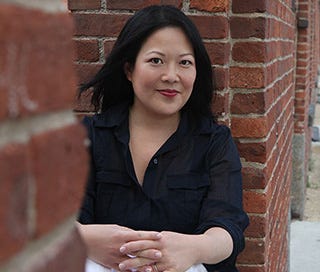


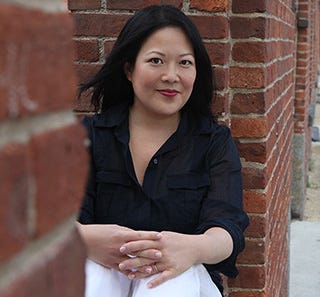

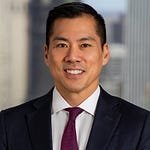
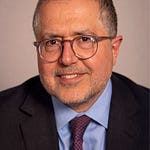


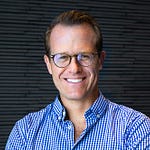


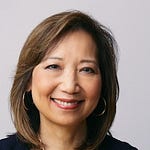
Share this post